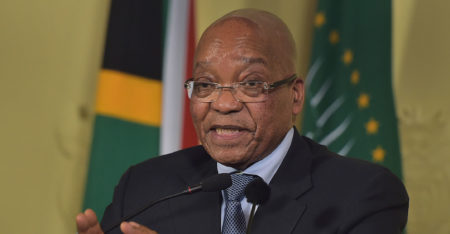
South Africa’s jobless rate stayed at a 14-year high in the three months to June as agriculture, mining and construction lost positions while finance and trade employed more people.
The unemployment rate was 27.7% in the second quarter of 2017, matching the figure in the previous three months, Statistics South Africa said in a report released on Monday in Pretoria. The median of five economists’ estimates compiled by Bloomberg was for the 27.5%.
The economy contracted by an annualised 0.7% in the first quarter, pushing the nation into a recession for the first time since 2009 after all industries except agriculture and mining shrank. Two companies cut the nation’s credit rating to junk in April after President Jacob Zuma changed his cabinet and removed Pravin Gordhan as finance minister. The central bank halved its 2017 growth forecast to 0.5% at its July meeting.
“With a significant uplift to growth performance unlikely to be on the horizon just yet, there is little to suggest a meaningful pick-up in job creation for some time,” Razia Khan, head of Africa macro research at Standard Chartered, said in an e-mailed response to questions.
The construction industry led declines in the second quarter, with 110 000 positions lost, the statistics agency said. Agriculture lost 40 000 positions, while 13 000 went in mining. The finance industry added 17 000 jobs.
“With growth as lackluster as this, in fact having entered a technical recession, you really can’t expect jobs in that kind of environment,” Pali Lehohla, the statistician-general, told reporters.
More than one in 10 gold-mining jobs in South Africa could disappear after Sibanye Gold announced last week it may cut 7 400 jobs, joining AngloGold Ashanti, which plans to reduce headcount by 8 500, in looking to close unprofitable shafts to stem losses. Pick n Pay Stores, the country’s second biggest supermarket chain, eliminated 10% of its staff to reduce costs. The company, which employs more than 80 000 people across Africa in its owned and franchise businesses, declined to say how many employees were affected.
Rand
The rand strengthened 0.4% to R13.39/US$ at 10.14am in Johannesburg on Monday. The yield on rand-denominated government bonds due in December 2026 fell two basis points to 8.62%.
Business confidence remains near the lowest in more than three decades. On Tuesday, lawmakers will vote in a motion of no confidence in Zuma, who has been implicated in several scandals and faces mounting opposition within the ruling ANC, which elects new leadership in a December conference.
“There is lots of evidence that the labour market is under pressure and it’s unlikely that we will get a pick-up in investment in the short term while you’ve got this political uncertainty, Kevin Lings, the chief economist at Stanlib Asset Management in Johannesburg, said by phone. “My suspicion is that it will get worse in the short term and then a lot will depend on how we deal with the politics after the ANC policy conference.” — Reported by Arabile Gumede, with assistance from Simbarashe Gumbo, (c) 2017 Bloomberg LP




